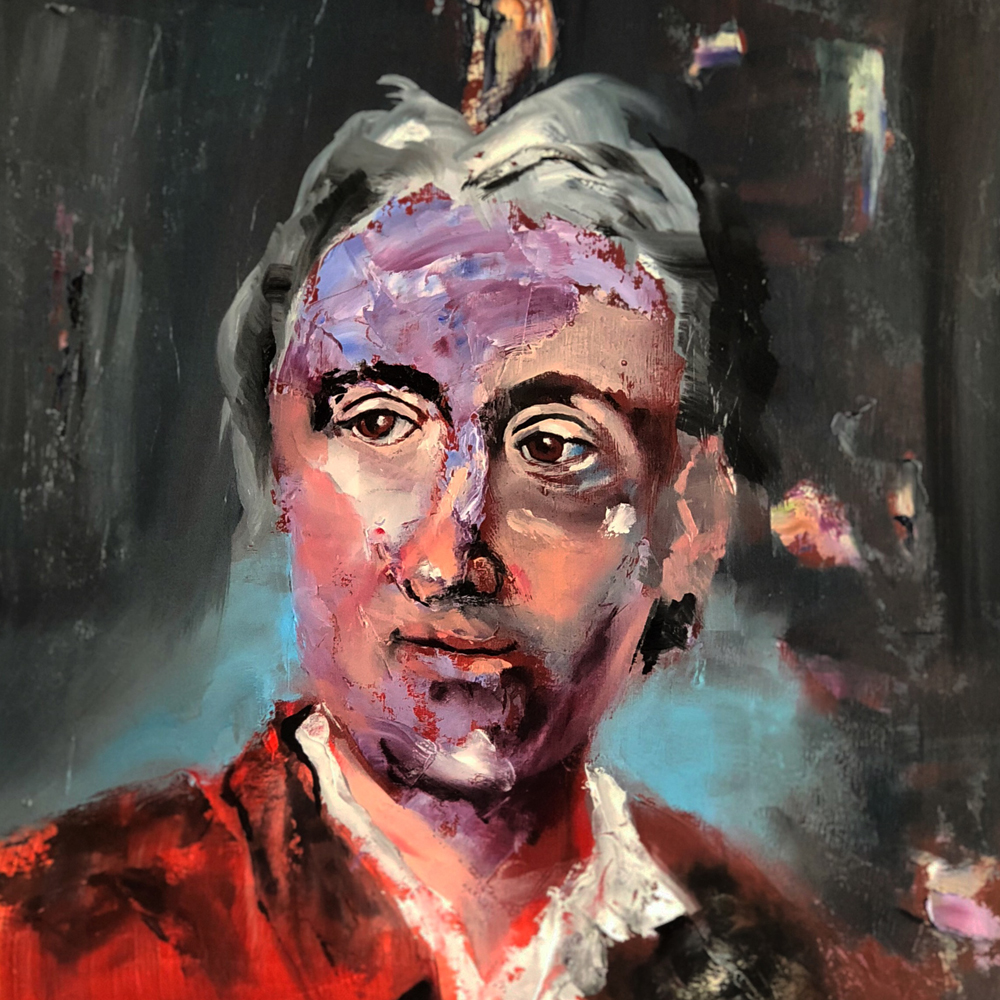"The word Freedom has no meaning"
Denis Diderot was born in Langres, France in 1713 and died Paris in 1784. Educated by the Jesuits as a young man, he was awarded the degree of master of arts in the University of Paris in 1732. Diderot decided to become a writer rather than enter one of the learned professions and led a disordered and bohemian existence, progressing from Roman Catholicism to atheism and then philosophical materialism. From his earliest original work he attacked Christianity and challenged religious authority, making publication difficult to secure and many of his writings on which his fame now rests only came out after his death.
Denis Diderot, 2018 Oil on Linen 71x61cm (Available for Sale)
From 1745 to 1772, Diderot served as chief editor of the Encyclopédie, one of the principal works of the Age of Enlightenment. Begun as an attempt to translate the Chambers Cyclopedia of 1728 from English into French the project grew and expanded until the complete work ran to 35 volumes. This massive publishing venture embodied the new scientific approach to knowledge that Voltaire had imported to France from England based on the work of Francis Bacon and Isaac Newton and the philosophical thinking of John Locke.
However, the Encyclopedia went against all the basic social, political and religious orthodoxies of the day and brought Diderot even more trouble with official censorship from the authorities until finally in 1759 it was suppressed by Royal decree. Diderot and his contributors, who included Voltaire, Montesquieu, and Rousseau, and the printers continued to work in secret until the project was completed making Diderot the editor of the most influential Encyclopedia ever.
Denis Diderot, 2018 Oil on Linen 35x30cm (Private Collection - USA)
Denis Diderot, 2018 Oil on Paper 28x28cm (Available for Sale)


